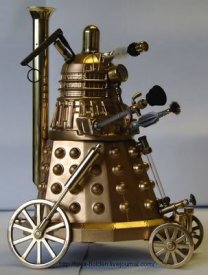arnuld
Member
I like SF and I just finished reading The Difference Engine - Bruce Sterling & William Gibson.
Honestly I did not like that book. I totally hate it, This was the 1st time I read an alternate-history novel but it did not work out as expected . I also read William Gibson's Burning Chrome. but then again I did not like it, seemed like atotal wastage of money. Anyway, I am not going to read William Gibson or Bruce Sterling again ( except The Hacker Crackdown, for which I am very curious, as that is non-fiction work by Bruce Sterling ).
. I also read William Gibson's Burning Chrome. but then again I did not like it, seemed like atotal wastage of money. Anyway, I am not going to read William Gibson or Bruce Sterling again ( except The Hacker Crackdown, for which I am very curious, as that is non-fiction work by Bruce Sterling ).
2nd, I read, The Man Who Sold the Moon by Robert Heinlein and it was excellent and The Naked Sun by Isaac Asimov and it was great too .
.
Honestly I did not like that book. I totally hate it, This was the 1st time I read an alternate-history novel but it did not work out as expected
2nd, I read, The Man Who Sold the Moon by Robert Heinlein and it was excellent and The Naked Sun by Isaac Asimov and it was great too







